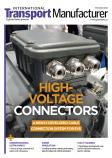Technology for EV vehicles promises accurate energy measurement, billing and easy authentication.
A new cloud-based electronic-vehicle charging platform aims to simplify metering and registration for EV owners and meter operators, helping to boost adoption of the vehicles. The technology comes with hardware configuration instructions and example software to quickly set up a secure connection between a simulated electric vehicle supply equipment (EVSE) and a cloud-based application.
The system, designed by Dutch semiconductor manufacturer NXP and called EasyEVSE, enables an electric vehicle user to set up the connection with a cloud-based application using Ethernet or Wi-Fi via its IW416 SoC solution. It also links with cloud services such as Microsoft Azure IoT central services.
Accurate energy billing
The system supports accurate energy billing via a pre-certified Kinetis M metrology MCU. And by accurately measuring the energy consumed during charging sessions, the system’s fair and transparent billing for EV owners provides trust and visibility.
The technology’s device-to-cloud communication also means that charging stations can be remotely monitored and controlled, providing real-time data on usage, availability, and performance. This information can be invaluable for charging stations as it allows for efficient management and optimisation of the infrastructure.
Security is provided via an EdgeLock SE050 secure element, and the technology is modular and scalable so can easily be used by vehicle provision companies.
Easy to install
A user guide describes how to get the EasyEVSE up and running using a simple setup, and a manual provides detailed instructions on how to use the development platform. In addition, the system’s one-tap NFC authentication means EV owners won’t have to carry physical cards or deal with complex authentication procedures.
That the product leverages NXP and partner development tools means other features can be added to the same platform.
The technology would be installed at an electric vehicle (EV) charging station with ports made up of at least one smart controller board and one power socket board. The technology integrates with both the smart controller, which manages security, services and connectivity, and the power socket board which distributes and measures energy.
Charging stations require high levels of efficiency, accuracy, connectivity and security and the solution will help with this.
The company argues that the system has a faster time to market with less complexity and reduced cost than alternative systems and that the product’s longevity program supports longer product lifecycles.
The widespread adoption of a technology that enables easy monitoring and measurement of energy usages promises to promote increased trust in the EV infrastructure, as well as boost the adoption of more sustainable vehicles.

















